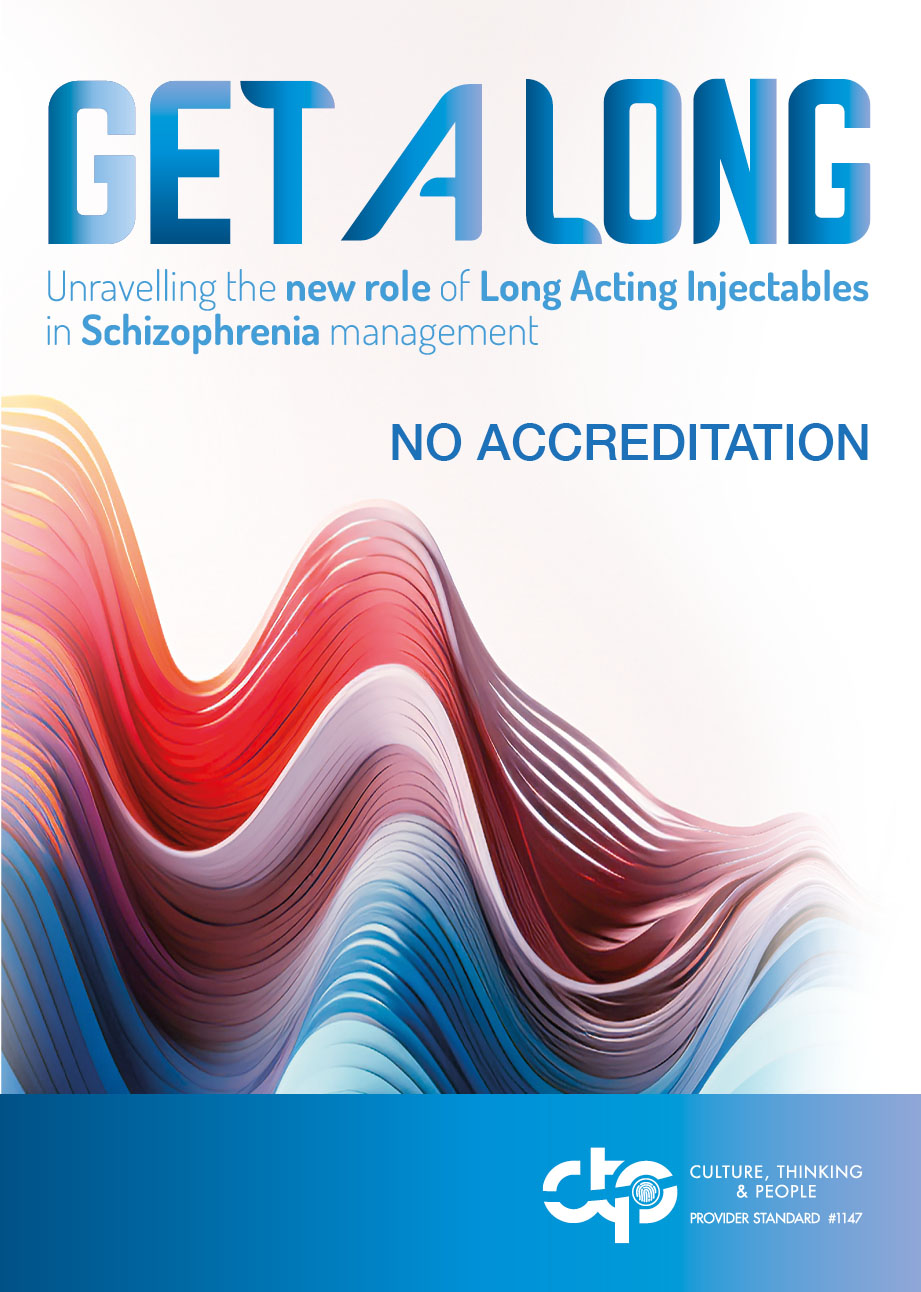
L’evento è accreditato per:
MEDICO CHIRURGO specialista in:
psichiatria
N. PARTECIPANTI: 200
CREDITI FORMATIVI:
Schizophrenia spectrum disorders are classified among Severe mental illness (SMI). The chronic nature of these disorders is characterized by recurring episodes, residual symptom burden, and a variable degree of cognitive dysfunction and functional impairment, which may persist even during periods of remission; they represent a major public health issue, accounting for significant health and social and economic burden worldwide.
Second-generation antipsychotic (SGAs), which inhibit dopaminergic D2 receptors and serotonergic 5-HT2A receptors in the brain, have shown efficacy in reducing symptoms of schizophrenia. Anyway, suboptimal adherence to treatment and relapse rates, deriving from different factors - patients' lack of insight into their illness, medication beliefs, substance abuse- are directly related to the patient's functional deterioration. Other challenges associated with the management of schizophrenia include adverse events, environmental elements, and sometimes the limited efficacy of therapies in relieving symptoms. In this scenario, it is crucial for patients to benefit from new technologies in long-acting injectable (LAI) antipsychotics development to overcome some of these challenges, and as an effective alternative to oral treatments, which may not be the best choice in patients with poor adherence.

Caricamento in corso…